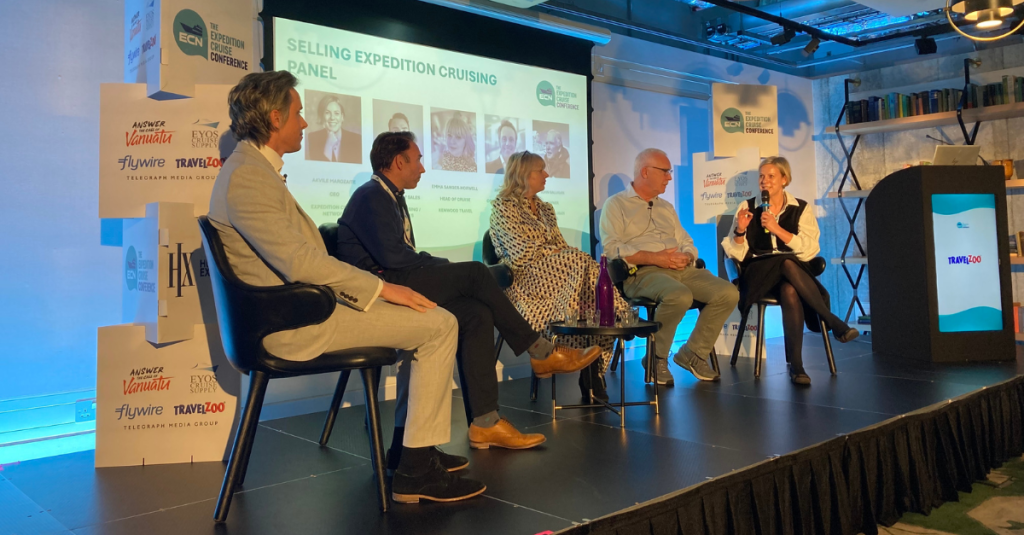In the evolving world of expedition cruises, industry experts are urging a strategic shift away from heavy late discounts. This initiative aims to bolster early booking incentives.
The call to action was a focal point at the recent Expedition Cruise Network conference, where agents highlighted the need for a paradigm shift towards early bookings over reactive price slashing.
The Push for Early Bookings
At the heart of the discussion during the Expedition Cruise Network (ECN) conference was a significant concern regarding the over-reliance on late discounts by expedition cruise operators. Industry insiders argue that this practice undermines perceived value and diminishes brand prestige. James Turner, commercial director at Wildfoot Travel, emphasised the importance of refocusing on early booking strategies, pointing out that such practices used to be the norm before the pandemic.
Turner highlighted that prior to the pandemic, expedition cruises could confidently be booked two years in advance, offering a compelling value proposition. Clients looked forward to these adventures, contributing to a thriving market. The drive for early bookings presents an opportunity to return to these successful practices.
Challenges of Overcapacity
The industry faces a unique challenge with overcapacity due to new expedition ships commissioned during the pandemic. This surplus has led to significant discounts, as highlighted by Turner, who noted the regular appearance of discounts as steep as 50%. Such pricing strategies can erode long-term value and expectations among consumers.
Turner compared the situation to the luxury car market, where discounts of this magnitude are virtually non-existent, advocating for strong early booking offers instead. The aim is to reassure clients that booking early provides the best value, filling ships well ahead of departures.
Agent Perspectives on Pricing
Agents like Emma Sanger-Horwell, head of cruise at Kenwood Travel, voiced their agreement with the move away from last-minute discounts. The need for alignment in pricing strategies across the board was repeatedly emphasised.
Sanger-Horwell illustrated the difficulties faced when clients expect recurring heavy discounts, often leading them to delay bookings. This not only complicates scheduling but also impacts the profitability of coordinating air and land packages close to departure dates.
For clients, seeing a late discount can reinforce waiting as a strategy, disrupting the booking process. Alex Loizou, director of sales at Munday Cruising, pointed out that this presents a real balancing act for operators.
Educating on Value Proposition
The conversation is shifting towards educating consumers on the inherent value of expedition cruises. This involves explaining why these trips command their prices, such as visiting remote and untouched locations.
Loizou stressed the importance of starting customer education early, ideally a year before the actual booking process begins. This proactive approach seeks to enhance understanding of the value, helping potential customers appreciate the unique offerings.
Industry Pricing Rebalancing
John Galligan of John Galligan Travel noted a broader industry trend of price resistance post-COVID. He observed that while demand surged, some suppliers overdrove prices, leading to consumer pushback.
Galligan reported an unprecedented increase in early bookings for 2026, demonstrating that with the right approach, early engagement can yield results.
There is a tangible sentiment within the industry that prices need to settle to more affordable levels, particularly in expedition cruising, where perceived value is crucial for sustaining growth.
Collaborative Approaches to Strategic Pricing
Galligan suggested that discounting should not solely fall on travel agents but should involve collaborative efforts from airlines to offer attractive pricing, facilitating smoother booking processes.
He posited that such a partnership could alleviate the pressure on agents, allowing them to deliver value without compromising on profitability.
This approach could redefine consumer expectations, encouraging earlier engagement and bookings, ultimately stabilising the market.
In conclusion, the push towards early booking incentives reflects a strategic alignment within the expedition cruise industry. By educating consumers on value and discouraging last-minute discounts, the sector can regain its footing.
The push towards early booking incentives reflects a strategic alignment within the expedition cruise sector. By educating consumers on value and discouraging last-minute discounts, the industry can regain its footing.
Strategically focusing on these elements is crucial for maintaining growth and ensuring a sustainable future for expedition cruising.

